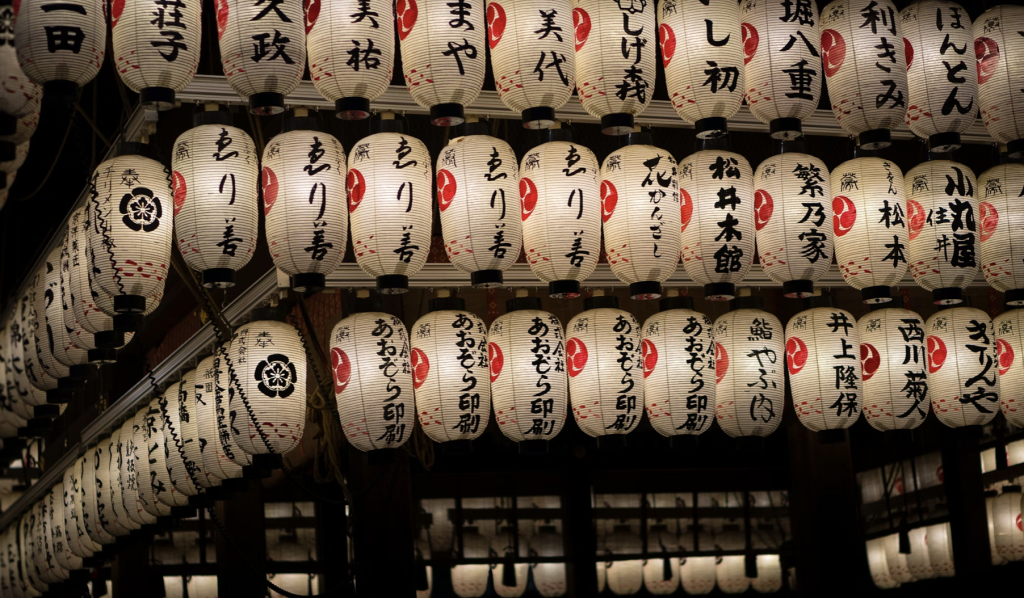Tower Mansion or Detached House? A Complete Home-Buying Guide for Foreign Residents in Tokyo
Chapter 1: Introduction – The Tokyo Housing Dilemma for Foreign Residents
Living in Tokyo offers a unique blend of modernity and tradition, making it a desirable destination for expatriates. However, for foreign residents considering homeownership, the Tokyo real estate market presents a distinct challenge: the choice between purchasing a tower mansion (high-rise condominium) or a detached house. This decision is influenced by various factors, including lifestyle preferences, family needs, financial considerations, and long-term goals.
The Appeal of Tower Mansions
Tower mansions are synonymous with luxury and convenience. Located in prime areas such as Minato, Shibuya, and Chiyoda, these high-rise condominiums offer unparalleled city views, proximity to business districts, and access to top-tier amenities. For foreign professionals working in central Tokyo, residing in a tower mansion can significantly reduce commute times and enhance work-life balance.
Moreover, tower mansions often come with comprehensive security systems, concierge services, and recreational facilities, catering to the needs of international residents accustomed to a certain standard of living. The prestige associated with living in a high-rise building also contributes to the allure of tower mansions.
The Charm of Detached Houses
On the other hand, detached houses provide a sense of privacy and space that is increasingly rare in densely populated urban areas. For families, especially those with children, the appeal of a detached house lies in the availability of private gardens, multiple bedrooms, and a homely atmosphere. Suburban areas like Setagaya, Meguro, and Suginami offer detached houses that are relatively more affordable than their central Tokyo counterparts.
Detached houses also present opportunities for customization and expansion, allowing homeowners to create a living space tailored to their specific needs. The tranquility and community-oriented environment of suburban neighborhoods can be particularly attractive to families seeking a stable and peaceful setting.
The Decision-Making Process
The decision between a tower mansion and a detached house is not merely a financial one; it encompasses a broader evaluation of lifestyle preferences, family dynamics, and long-term aspirations. Factors such as proximity to international schools, availability of public transportation, neighborhood safety, and future resale value play crucial roles in this decision-making process.
For foreign residents, understanding these nuances is essential to making an informed choice that aligns with their personal and professional lives in Tokyo. This guide aims to provide a comprehensive analysis of both housing options, offering insights into their advantages and disadvantages, and assisting prospective homeowners in navigating the complexities of the Tokyo real estate market.
Chapter 2: Overview of Homeownership in Japan
Freehold vs Leasehold
In Japan, properties are generally divided into freehold (ownership of both land and building) and leasehold (ownership of the building only, with land leased from another party). For foreign residents, understanding this distinction is critical. Freehold properties offer more security and potential for long-term asset accumulation, whereas leasehold properties are usually cheaper but come with limited tenure and potential restrictions on resale.
Building vs Land Ownership
While tower mansions typically involve shared ownership of land and common areas, detached houses provide full control over the land. Land ownership is a significant factor in long-term value retention, especially in Tokyo, where land scarcity drives appreciation over time. Investors and families looking for stable asset growth often prefer properties with freehold land rights.
Japanese Real Estate Terminology
Foreign buyers must familiarize themselves with terms such as:
- 建ぺい率 (Coverage Ratio): Maximum building footprint relative to land area
- 容積率 (Floor Area Ratio): Maximum allowable total floor area
- 管理費 (Management Fee): Monthly cost for maintenance and shared services
- 修繕積立金 (Reserve Fund for Repairs): Monthly contribution for long-term building upkeep
These factors directly influence both the cost and practicality of owning a property in Tokyo.
Chapter 3: Understanding the Tokyo Property Market Structure
Role of Real Estate Agents and Managers
In Japan, real estate agents (仲介, chūkai) play a pivotal role in guiding buyers through legal, financial, and procedural aspects. Property management companies handle ongoing building maintenance and communal spaces, particularly for tower mansions. Understanding these roles is crucial for foreign buyers who may be unfamiliar with Japan’s highly regulated property system.
Buying as a Foreigner: Eligibility, Financing, and Taxes
Foreign residents can purchase property in Japan without restrictions on nationality. However, securing a mortgage often requires proof of stable income, permanent residency status, or employment with a reputable company. Taxes include:
- Property Acquisition Tax (不動産取得税): Paid once at purchase
- Fixed Asset Tax (固定資産税): Annual tax based on assessed value
- City Planning Tax (都市計画税): Applies in certain urban zones
Foreign buyers must also consider inheritance tax implications, especially if they plan to pass on property to children.
Chapter 4: What Is a “Tower Mansion”?
Tower mansions are high-rise residential buildings, typically exceeding 20 stories, offering modern amenities such as:
- Security systems, concierge services, and key card access
- Fitness centers, pools, lounges, and communal gardens
- Premium city views and proximity to business districts
They cater to professionals seeking convenience, safety, and prestige. The communal living aspect ensures residents are part of a managed, organized environment.
Chapter 5: What Is a Detached House in Tokyo?
Detached houses are standalone properties, often with:
- 2–3 floors, private gardens, and parking spaces
- Ownership of both building and land (freehold)
- Flexibility for remodeling or expansion
Located primarily in suburban districts, they offer privacy and stability, appealing to families with children. The trade-off is often longer commute times and higher costs for utilities and maintenance.
Chapter 6: Financial Simulation: Tower Mansion vs Detached House (50M–70M Yen)
| Item | Tower Condo (Minato) | Detached House (Setagaya) |
|---|---|---|
| Purchase Price | ¥65M | ¥60M |
| Loan (35 yrs, 1.2% interest) | ¥185k/month | ¥170k/month |
| Management Fee | ¥35k/month | ¥10k/month |
| Repairs Reserve | ¥15k/month | ¥5k/month |
| Property Tax | ¥15k/month | ¥12k/month |
| Total Monthly | ¥250k | ¥197k |
| Commute Time | 20 min to central Tokyo | 45 min to central Tokyo |
| Resale Potential | High in central districts | Moderate, depends on location |
Analysis: Tower condos have higher monthly costs but offer convenience, security, and central location. Detached houses are cheaper monthly but may involve longer commute and less immediate access to amenities.
Chapter 7: Lifestyle Comparison by Profile
Family with Children
- Tower Mansion: Convenience, security, and proximity to international schools
- Detached House: More space, private garden, family-oriented community
Remote Worker / Professional Couple
- Tower Mansion: Short commute, networking opportunities
- Detached House: Quiet environment, more space for home office
Long-Term Resident Planning for Retirement
- Tower Mansion: Modern amenities, low maintenance
- Detached House: Potential for property value appreciation and customization
Chapter 8: Earthquake & Disaster Resilience
- Tower Mansions: Built to strict seismic codes, but elevators and high floors may be inaccessible post-earthquake
- Detached Houses: Lower height reduces seismic sway, but older houses may require retrofitting
Chapter 9: Maintenance, Monthly Running Costs & Hidden Expenses
- Tower Mansion: Monthly management fees, common area upkeep, periodic renovations
- Detached House: Private maintenance, exterior painting, landscaping, insurance
Chapter 10: Legal & Tax Implications for Foreign Buyers
- Ownership rights, inheritance, and property taxes
- Considerations for visa status and future relocation
Chapter 11: Case Studies
American Family in Koto-ku
- Purchased a 2-bedroom tower mansion
- Prioritized commute and security
- Enjoyed city view and amenities
Indian IT Couple in Shinagawa
- Purchased a 3-bedroom detached house
- Preferred privacy and space for future children
- Longer commute acceptable due to work-from-home flexibility
French Investor in Meguro
- Purchased a tower mansion as a rental investment
- High demand from expatriates ensures steady rental income
Chapter 12: Long-Term Resale Value & Exit Strategy
- Tower Mansions: Resale values remain high in central Tokyo; dependent on building age and location
- Detached Houses: Value depends heavily on land appreciation; older houses may depreciate faster
Chapter 13: Decision Framework – How to Choose
- Security & Amenities → Tower Mansion
- Space & Privacy → Detached House
- Resale Potential → Tower Mansion central / Detached House suburban
- Cost → Detached House generally lower monthly outlay
Chapter 14: Conclusion & Recommendation Matrix
| Priority | Recommendation |
|---|---|
| Central Tokyo Access | Tower Mansion |
| Family with Children | Detached House |
| Investment Potential | Tower Mansion |
| Long-Term Comfort & Space | Detached House |
| Monthly Cost Sensitivity | Detached House |
Key Takeaway: There is no one-size-fits-all solution. Foreign residents must weigh lifestyle, family needs, financial situation, and long-term plans to make the optimal choice in Tokyo’s housing market.

